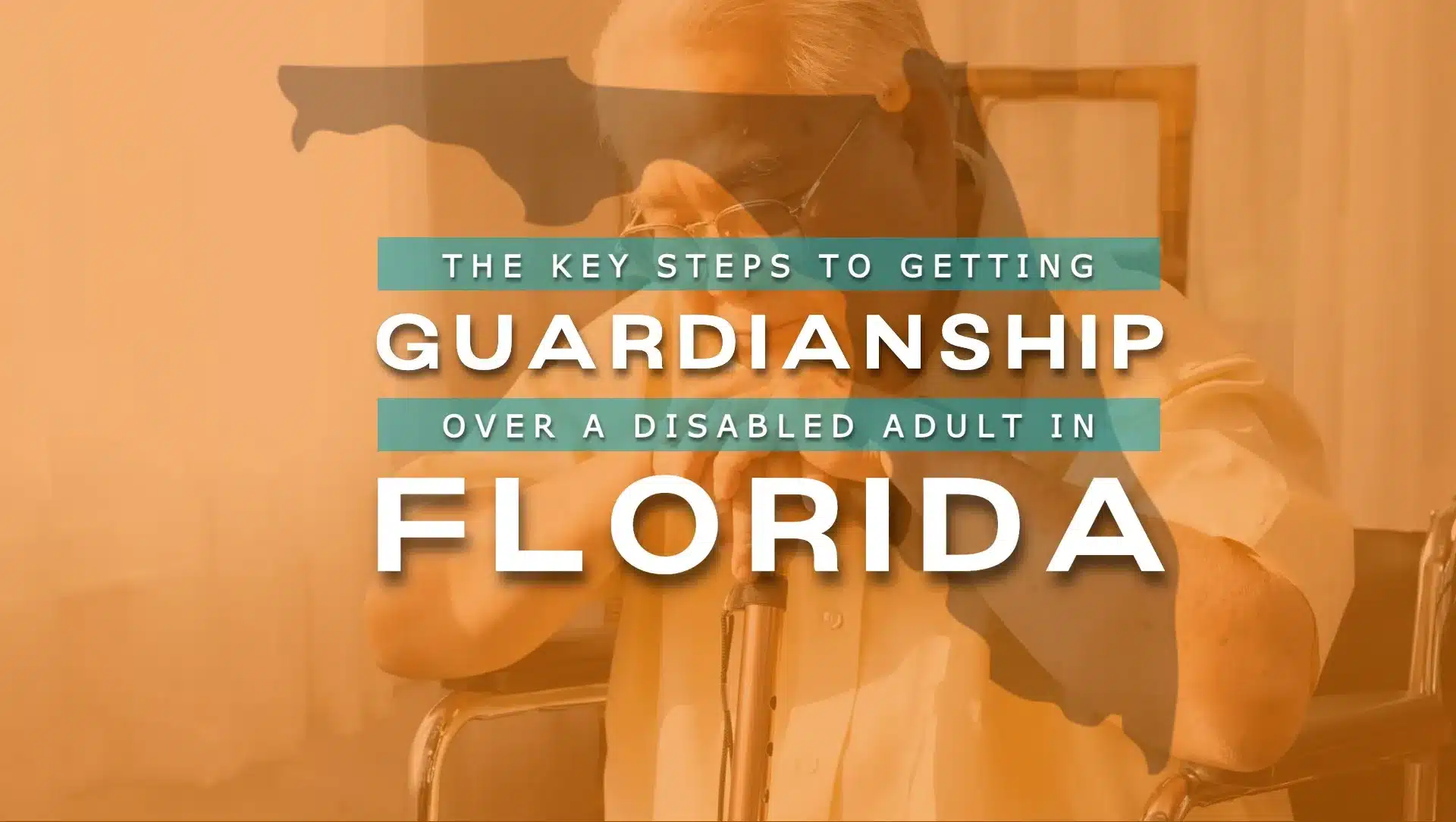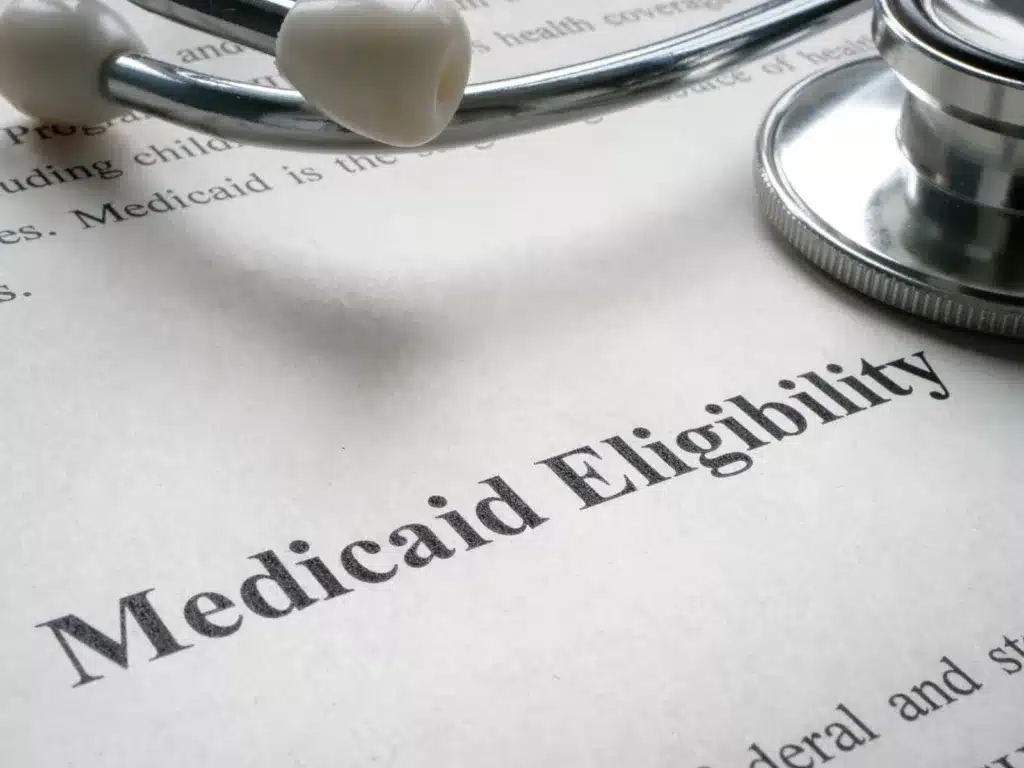How Do You Get Guardianship of a Disabled Adult in Florida?
When a loved one becomes unable to manage their own personal, medical, or financial decisions due to a disability, family members may need to step in. In Florida, this can be accomplished through a legal process known as guardianship. While guardianship is a serious responsibility, it can provide crucial protections for adults with disabilities who can no longer advocate for themselves.
At RTRLAW, we help families across Florida understand their legal rights and options when it comes to protecting vulnerable loved ones. If you believe guardianship may be the right choice for your situation, our experienced estate planning and probate attorneys can guide you every step of the way.
What Does Guardianship Actually Mean in Florida?
Guardianship is a legal relationship where a court appoints one person (the guardian) to make decisions for another person (the ward), who has been found legally incapacitated. In the case of a disabled adult, this might include someone who has:
- A developmental disability
- Traumatic brain injury
- Alzheimer’s or another degenerative disease
- A mental health condition that limits decision-making abilities
Guardianships can be broad or limited, depending on the needs of the individual and the extent of their incapacity. Florida courts take these determinations seriously, ensuring that the least restrictive form of guardianship is used to protect the ward’s rights and dignity.
When is Guardianship Necessary?
Guardianship is typically pursued when an adult is no longer capable of managing essential aspects of their life, and there are no less restrictive alternatives in place, such as:
- A valid power of attorney
- A healthcare surrogate designation
- A trust or advance directive
If these documents do not exist, or the person can no longer make or revoke them due to incapacity, guardianship, for better or worse, may be the only legal way to step in and protect them.
What is the Process for Getting Guardianship for a Disabled Adult in Florida?
Getting guardianship in Florida is a court-supervised process that involves several key steps:
- File a Petition for Incapacity and Guardianship: You must file two petitions with the local circuit court:
- A Petition to Determine Incapacity, which asks the court to assess whether the adult lacks capacity
- A Petition for Appointment of Guardian, which requests that you (or someone else) be named guardian
- Court-Ordered Evaluation: The court will appoint a three-member examining committee, typically including two doctors and a third professional, to evaluate the alleged incapacitated person and submit written reports.
- Incapacity Hearing: The judge will hold a hearing to review the evaluations. If the court finds the individual wholly or partially incapacitated, they will determine what rights should be removed and decide whether guardianship is necessary.
- Appointment of Guardian: If the court grants the guardianship, the appointed guardian must:
- Complete a background check
- Attend an 8-hour guardianship training course
- Submit an initial guardianship plan and inventory of assets (if applicable)
From there, the guardian has continuing responsibilities, including filing annual reports with the court. This process ensures the ward’s rights are protected while allowing the guardian to act in their best interests under judicial oversight.
What Responsibilities Does a Guardian Have?
The guardian’s duties vary depending on whether they’re given plenary (full) guardianship or limited guardianship. Common responsibilities include:
- Making medical and healthcare decisions
- Managing finances, property, and benefits
- Deciding where the person lives
- Coordinating services or support for the ward
- Reporting regularly to the court
Guardians must always act in the best interest of the ward and avoid any conflicts of interest. These responsibilities are taken seriously under Florida law, and failure to fulfill them properly can result in legal consequences or removal by the court.
How Long Does the Guardianship Process Take?
In Florida, the process can take anywhere from 30 to 90 days on average, depending on the court’s caseload, the complexity of the case, and whether the petition is contested. Emergency temporary guardianship may be granted more quickly if the person is in immediate danger.
What Is Emergency Temporary Guardianship in Florida?
In urgent situations where a disabled adult is at immediate risk of harm, Florida law allows courts to grant an Emergency Temporary Guardianship (ETG). This legal arrangement gives a temporary guardian the authority to act swiftly to protect the person’s safety, health, or financial well-being until a permanent guardianship can be decided.
To obtain emergency temporary guardianship, the petitioner must demonstrate to the court that:
- The alleged incapacitated person is in danger of abuse, neglect, exploitation, or serious physical harm
- Immediate intervention is necessary to prevent further harm
- No other legal arrangements (such as powers of attorney) are currently in place to provide protection
Once granted, an ETG is typically valid for up to 90 days, although it can be extended for an additional 90 days if justified. During this period, the court may proceed with a full incapacity determination and guardianship hearing.
Emergency guardians have limited but crucial powers, often including:
- Approving emergency medical treatment
- Relocating the individual for safety
- Securing access to assets to prevent financial abuse
Emergency Temporary Guardianship is a critical legal tool when a loved one faces urgent risk and time is of the essence. If you’re in a situation where immediate action is necessary, RTRLAW can file the appropriate petitions quickly and work to protect your loved one with urgency and care.
Are There Alternatives to Guardianship for Disabled Adults?
Guardianship should always be viewed as a last resort, because it removes the individual’s legal rights. Alternatives include:
- Durable Power of Attorney
- Healthcare Surrogate
- Representative Payee (for Social Security benefits)
- Revocable Living Trust
These tools can offer similar protections without court involvement, but only if set up while the person still has legal capacity.
Exploring these alternatives early on can preserve a person’s autonomy and help families avoid the stress and expense of formal guardianship proceedings.
RTRLAW Helps Protect Those Who Can’t Protect Themselves
Florida guardianship laws can be complex and emotionally difficult for families. At RTRLAW, we help clients navigate the court system, prepare filings, attend hearings, and fulfill guardianship duties with confidence. Our dedicated and compassionate elder law attorneys ensure the process runs as smoothly and respectfully as possible.
We can also help determine whether alternatives to guardianship may be more appropriate based on your loved one’s current legal and medical status.
Guardianship is not just a legal arrangement. It is a personal commitment to protecting someone you care about when they’re most vulnerable. While the process may seem daunting, you don’t have to go through it alone.
At RTRLAW, we are honored to help Florida families take the legal steps necessary to safeguard their loved ones’ dignity, rights, and well-being.
If you’re concerned about a disabled adult in your life and want to explore your options for guardianship in Florida, contact RTRLAW today for a free, confidential consultation. Call us at 833-HIRE-RTR or fill out our online form to learn more.


 CALL US NOW
CALL US NOW TEXT US NOW
TEXT US NOW



























